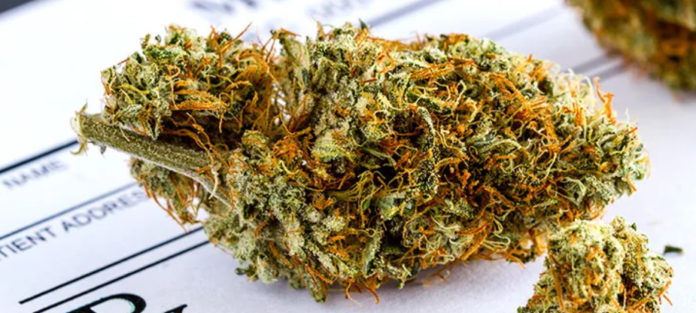|
Getting your Trinity Audio player ready...
|
The enactment of adult-use marijuana legalization laws is associated with reduced demand for certain prescription drugs, according to data published in the journal Health Economics.
A pair of researchers affiliated with Cornell University and Indiana University assessed trends in Medicaid prescriptions in all 50 states during the years 2011 to 2019. They identified “significant reductions in the volume of prescriptions within the drug classes that align with the medical indications for pain, depression, anxiety, sleep, psychosis, and seizures” in those states that had enacted legalization versus those that did not.
“These results have important implications,” the study’s lead author said. “The reductions in drug utilization that we find could lead to significant cost savings for state Medicaid programs. The results also indicate an opportunity to reduce the harm that can come with the dangerous side effects associated with some prescription drugs.”
Prior ecological studies have similarly identified an association between the adoption of medical cannabis access laws and reduced Medicaid prescription drug spending.
“Our results suggest substitution away from prescription drugs and potential cost savings for state Medicaid programs,” the study’s authors concluded. “This study adds to the growing body of literature surrounding the effects of RCLs [recreational cannabis laws] on pharmaceutical utilization.”
Full text of the study, “Recreational cannabis legalization associated with prescription drug utilization among Medicaid enrollees,” appears in Health Economics. Additional information is available from NORML’s fact sheet, ‘Relationship Between Marijuana and Opioids.’






